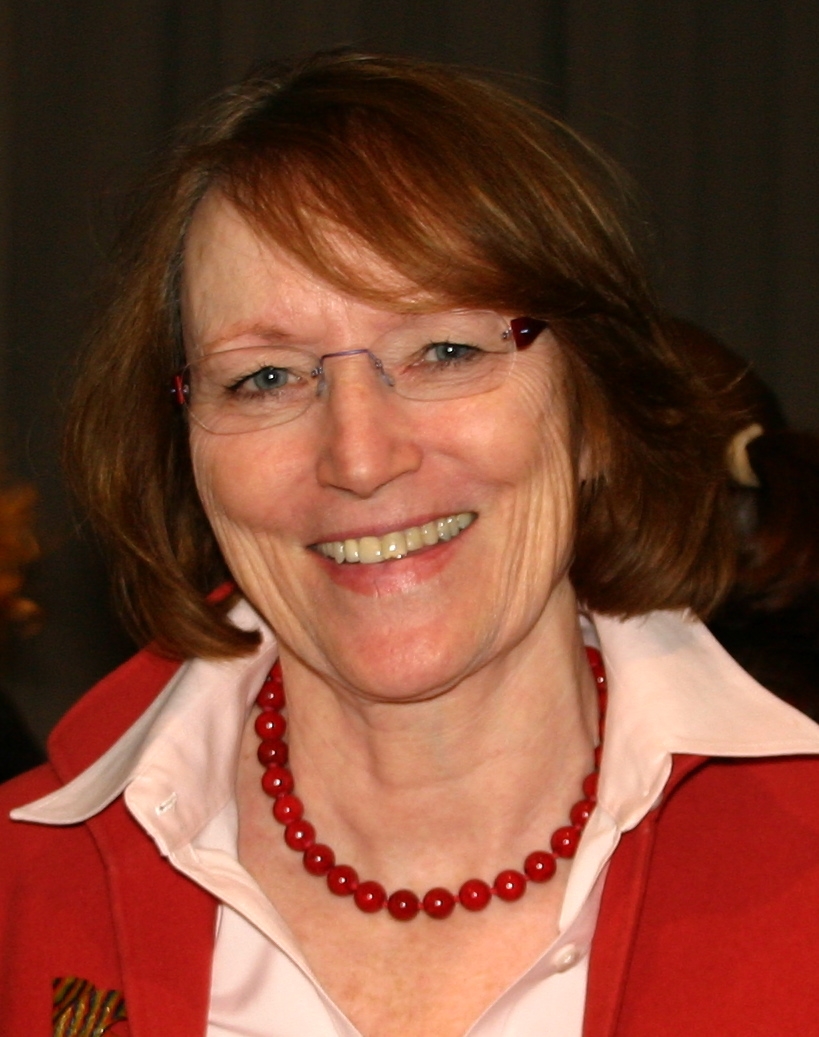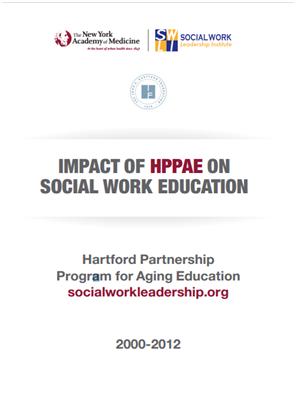 Pat Volland
Pat VollandThrough our new strategic plan we are focusing on Linking Education to Practice as one of our funding portfolios to improve the training and practice of health care professionals who work with older adults. But one of our current grant programs has been successfully making this linkage since 2001 -- the Hartford Partnership Program in Aging Education (HPPAE).
HPPAE is a practicum model for training second-year master's level social work students in geriatric competencies. The model also includes providing students with a varied experience in several agencies serving older adults in their year-long internship program. Many of the agencies subsequently seek to hire their interns who are educated and expertly trained in providing care to their older clients. We are pleased to share a recent report describing the impact of the model.
Pat Volland, MSW, Visiting Distinguished Lecturer and Director of Social Work Leadership Institute at the Silberman School of Social Work at Hunter College and the project leader, describes the program and its impact:
 We are delighted to inform you of the release of the Hartford Partnership Program for Aging Education (HPPAE) Impact Report. The HPPAE (formerly the "Practicum Partnership Program") was founded on the belief that the most effective way to train qualified social workers to meet the demands of America's aging population is to build strong partnerships between academia and the community agencies that serve older adults. These university-community partnerships ensure that social work education is more inclusive of and responsive to today’s older adults, who are transforming our traditional notions of long-term care.
We are delighted to inform you of the release of the Hartford Partnership Program for Aging Education (HPPAE) Impact Report. The HPPAE (formerly the "Practicum Partnership Program") was founded on the belief that the most effective way to train qualified social workers to meet the demands of America's aging population is to build strong partnerships between academia and the community agencies that serve older adults. These university-community partnerships ensure that social work education is more inclusive of and responsive to today’s older adults, who are transforming our traditional notions of long-term care.
HPPAE is one of the Geriatric Social Work Initiative (GSWI) programs funded by the John A. Hartford Foundation. The GSWI also includes the Gero Ed Center, Faculty Scholars, and Doctoral Fellows programs. HPPAE was developed and administered by the Social Work Leadership Institute (SWLI) first at The New York Academy of Medicine, and now at the Silberman School of Social Work at Hunter College.
The report describes the impact of HPPAE from 2000 to 2012 on recruiting and training MSW level social workers for the field of aging. Three areas of focus were identified in assessing the HPPAE impact: aging service agencies and the delivery of care; student learning and careers in aging; and schools of social work and aging education. A fourth area of additional benefits is also described. HPPAE has been shown to have a positive impact on student expertise and faculty development, with increased aging content in community based agencies and schools of social work.
We are indebted to the John A. Hartford Foundation for the development and success of the HPPAE initiative. We would like to thank the National Advisory Panel for their commitment to the development and implementation of HPPAE. Thank you also to the Center for Evaluation Applied Research (CEAR) at The New York Academy of Medicine for their assistance. Finally, our thanks to all of you for your tireless efforts in training and growing the social work workforce caring for older adults and their caregivers.
To further the expansion and sustainability of the model, HPPAE will transition to and be institutionalized within the Council on Social Work Education (CSWE) by early 2014. This speaks to the success of the HPPAE model in reaching the goal of normalization within schools of social work.
Sincerely,
Patricia Volland, MSW, MBA
Director, Social Work Leadership Institute
Silberman School of Social Work at Hunter College
